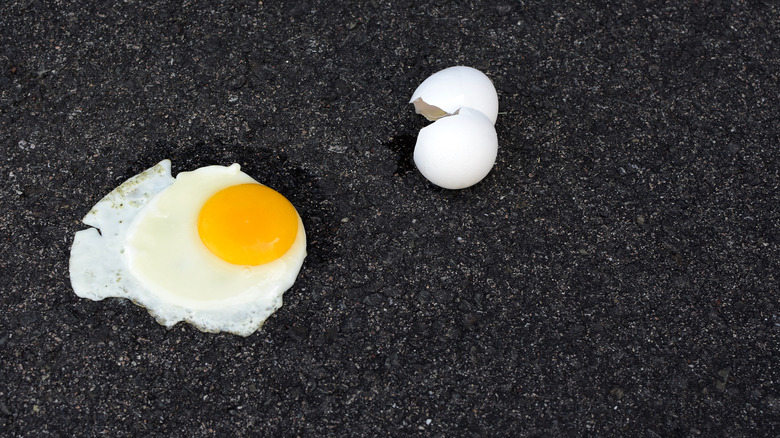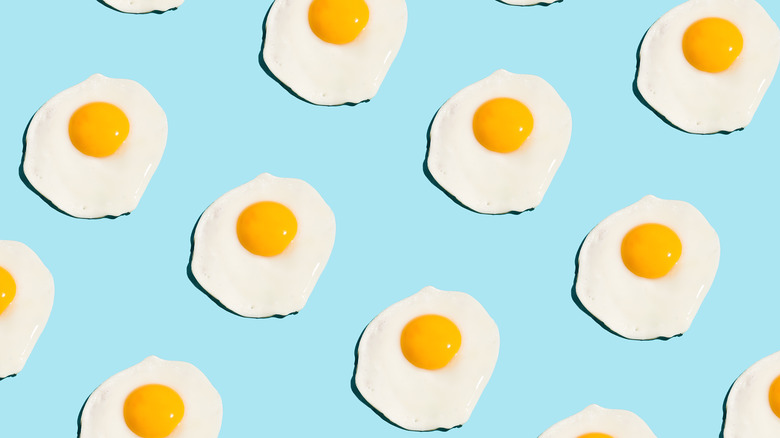Can You Actually Cook An Egg On A Hot Sidewalk?
It's one of those experiments that always seems to go wrong, but people keep trying it anyway. That might have something to do with a certain town in Arizona actually holding an annual Fourth of July sidewalk egg fry, or it might have something to do with the old expression, "It's so hot you could cook an egg on the sidewalk!" But holidays and old saws aside: Can you really fry an egg on a sidewalk?
First, let's try to figure out where the expression came from. Perhaps the first reference to cooking an egg on the sidewalk is found in an 1899 article titled "How to Keep Cool" that was published in the Atlanta Journal-Constitution (via Smithsonian Magazine). The act was referenced again in an October 1933 article in the Los Angeles Times. "Sidewalks were so torrid the heat could be felt through shoe soles," Smithsonian Magazine notes in a requote from the article. "Nobody tried to fry eggs in the sun in the street, but discussions on every corner was to the effect that it could be done, if the eggs and the frying pan had been handy." So we know this idea has been around for a while, even if we don't know exactly the first time it was suggested.
But does it work?
So, can you really fry an egg on a sidewalk if the day is hot enough? Uh, no ... not really.
According to the Library of Congress, eggs need to reach 158 degrees Fahrenheit to "become firm." Egg proteins "must denature (modify), then coagulate," which doesn't happen at lower temperatures. Since the hottest temperature ever recorded on earth was 134 degrees Fahrenheit (in Death Valley in 1913), the sidewalk experiment is almost certainly not going to work. Ever. (And even if it looks promising, all evidence suggests you should avoid eating food that has been sitting outside in the sun, as it's a pretty good way to get food poisoning.)
Even if it is one of the hottest days on record, or somebody in Arizona is having a contest, we'd recommend you stick to cooking eggs in your own kitchen. The ending is sure to be happier and the process will be a lot easier to clean up afterwards.

